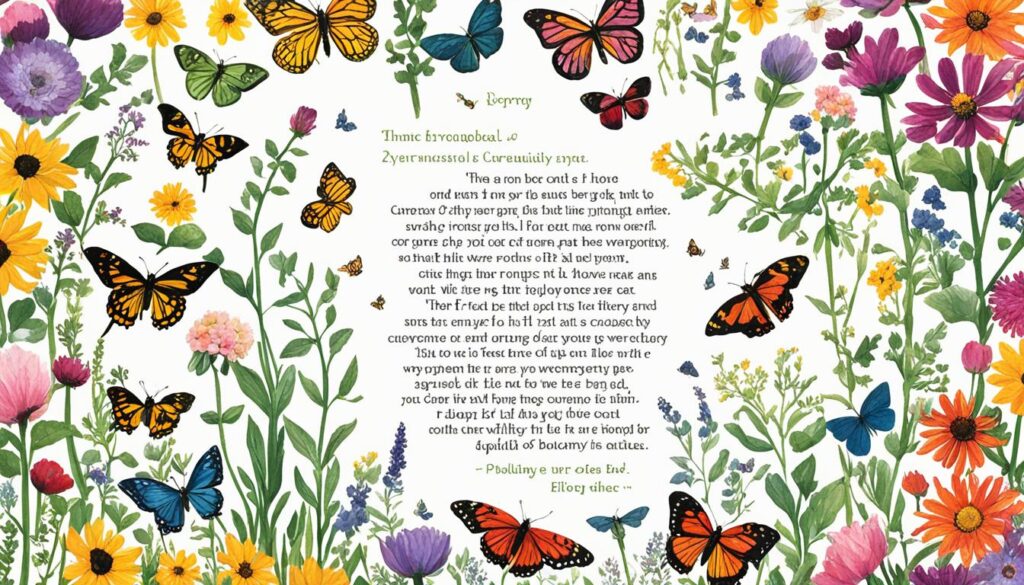Unlock your creativity and improve your writing with these 10 fun activities. They include journaling, writing prompts, and exercises on character development and poetry. Discover new ways to express yourself and beat writer’s block.
These activities are great for both new and experienced writers. They will challenge and inspire you to improve your writing skills. Explore the world of creative writing and try different genres and activities to find your unique voice.
Learn how to write compelling stories and master the art of poetry writing. This collection of exercises will help you grow your skills. Start with journaling to let your thoughts flow freely. Then, work on character development to deepen your storytelling.
Break through writer’s block with these exciting writing prompts and storytelling challenges. Start a journey of self-discovery and explore the endless possibilities of writing.
Unleash Your Creativity with Writing Prompts
Writing prompts are great for sparking your creativity and exploring new ideas. They’re useful for both seasoned writers and beginners. These prompts can help you unlock your imagination and expand your writing.
Explore Different Writing Prompt Genres
Try out various writing prompt genres, like imaginative fiction, personal reflections, and more. Fiction prompts can take you to new worlds, making you craft engaging characters and plots. Poetry prompts help you express feelings and thoughts through verse. Journaling prompts let you explore your inner world, diving into your thoughts and experiences.
Create Your Own Unique Writing Prompts
Feel free to make your own writing prompts. Customize them to fit your interests, writing style, and experiences. This can lead to deeper and more meaningful creative work. By creating your prompts, you can follow your imagination wherever it goes.
Writing prompts are great for sparking inspiration for your next big project or for creative self-expression. They help you tap into your creativity and push your writing to new heights.
Freewriting: Let Your Pen Fly
Freewriting lets you pour out your thoughts without stopping. It’s a way to unlock your creativity and break through writer’s block. You might find new ideas you never thought of before.
This method is different from regular writing. You don’t plan or edit as you go. It’s about writing freely, letting your subconscious mind guide you. This can be very freeing and enlightening.
Freewriting is great for overcoming creative blocks or understanding your thoughts better. It’s also a fun way to enjoy writing without worrying about perfection. Let your pen move freely and see what happens.
Character Development Exercises
Crafting compelling character development is key to great fiction. Try character creation exercises to dive into their personalities, motivations, and backstories. This makes your characters more real and relatable to readers.
Create Backstories for Memorable Characters
Looking into your characters’ backstories deepens their development. Think about their early life, major life events, and experiences that shaped them. These details help create characters that feel real and engaging.

To make characters memorable, make them feel like real people. Look into their hopes, fears, and what makes them unique. Adding depth and nuance turns your characters into captivating beings that grab your readers’ attention.
Setting the Scene: Descriptive Writing Activities
Unlock the power of descriptive writing and take your readers on a journey. Creating vivid setting descriptions is key in creative writing. It lets you pull your audience into the world you’ve built. With engaging exercises, you’ll learn to use sensory details to make your settings come alive.
Start by looking at your surroundings with new eyes. Close your eyes and breathe deeply, noticing the sights, sounds, smells, textures, and tastes around you. Write down what you see, focusing on what makes the setting special. Aim to describe the scene in a way that makes the reader feel like they’re there.
Then, try out different ways to improve your descriptive writing. Describe the same setting from different viewpoints, highlighting unique features and feelings. Use metaphors and similes to make your descriptions more vivid. Think about how the setting’s mood and atmosphere can affect your writing’s tone.
Improving at setting description opens up new ways to grab your readers and pull them into your stories. Dive into the world of descriptive writing. Let your words take your audience on a journey to the heart of your stories.
Explore Different Writing Perspectives
Unlock your creative potential by exploring the diverse world of writing perspectives. From the intimate first-person narrative to the distant third-person point of view, each perspective offers a unique way to shape your stories. By experimenting with different perspectives, you can change the tone, voice, and emotional connection in your writing.
First-Person, Second-Person, and Third-Person Points of View
The first-person perspective puts the reader inside the protagonist’s mind. They experience the story through the character’s thoughts and feelings. In contrast, the second-person point of view talks directly to the reader, making them feel part of the story. The third-person narrative gives a more objective view, letting you explore a wide range of characters and settings.
Learning to navigate these perspectives can open up new creative possibilities. Try switching between points of view in one piece or stick with one throughout. See how your writing changes and the emotions it evokes in your readers.
Using different writing perspectives can boost your creative writing skills. Start exploring and see how changing viewpoints can change how you tell stories and connect with readers.
Word Games and Linguistic Challenges
Unlock the power of language with word games and challenges. These activities boost your creativity and sharpen your writing skills. They make you a better writer.
Expand Your Vocabulary with Word-Building Activities
Start with word-building exercises to explore language’s depths. Use prefixes, suffixes, and root words to make new words. This adds depth to your writing.
By improving your vocabulary, you can express yourself better. You’ll be able to share your ideas clearly and powerfully.
Try linguistic puzzles to test your word skills. Games like anagrams and crosswords are fun and helpful. They improve your vocabulary, spelling, and word patterns.
These games spark your imagination and make you appreciate language more. They help you see how language shapes your writing.
Word games and challenges unlock your full linguistic potential. They’re a journey of discovery. Each new word you learn broadens your creative writing skills.
Collaborative Writing Projects
Join forces with others for group writing projects. Discover the power of shared storytelling. Each writer brings their own view and voice to the table. This way of creative writing builds community and helps you grow as a writer.
In a collaborative writing project, you get to share ideas, give feedback, and shape the story together. This teamwork can lead to exciting plot turns, deeper characters, and a better final story. Dive into the ups and downs of group writing and let your team’s creativity stand out.
Whether you’re working on a short story, a novel, or non-fiction, collaborative writing can make your work come alive. Use the unique skills and views of your group. See the magic of shared storytelling happen right before your eyes.
Activities for Conquering Writer’s Block
Writer’s block can be really tough for creative writers. But, there are many ways to boost your creativity and beat these blocks.
Freewriting is a great method. Set a timer for 5-10 minutes and write non-stop without editing. This helps you get past the first hurdle and connect with your deep thoughts. Trying out different writing prompts is another good idea. These prompts push you to think differently and explore new ideas.
Changing where you write can also help a lot. Try writing in a new spot, like a café, a park bench, or even your bathtub. A new setting can spark new ideas. Also, taking time to relax and practice mindfulness can refresh your mind for writing.
Remember, beating writer’s block takes time and trying different things. Be patient and open-minded. Don’t hesitate to explore new ways. With creativity and determination, you’ll get past it soon.
Poetry Prompts and Verse Explorations
Start your journey into the exciting world of poetry writing. It’s perfect for both seasoned writers and those looking for new ideas. Exploring different poetic forms can spark your creativity and help you find your own voice.
Experiment with Different Poetic Forms
Try out everything from the short haiku to the fun limerick. The rhythmic sonnet and the free verse offer many ways to be creative. Poetry prompts can push you to try new forms, each with its own style and feel.
Jump into the world of poetry and let your words come alive. Shape them into beautiful pieces that share your feelings, thoughts, and what you see. Poetry can create vivid pictures in the mind, share deep thoughts, and touch people’s hearts.

As you try out different poetic forms, improve your writing skills and find your unique voice. Enjoy making haikus, limericks, sonnets, and free verse. Let your creativity fly high, and make your poetry a reflection of your unique view of the world.
Storytelling Through Visual Prompts
Unlock your storytelling skills with visual prompts. Use images, paintings, or art to spark your imagination. This can boost your writing skills and unlock your creativity.
Interpret Images and Artwork with Words
Visual prompts can spark your creative writing. Look at a photo, painting, or sculpture and see the stories they tell. Use your writing to make these stories come alive.
Explore ekphrastic writing, where you tell stories inspired by visual art. Dive into visual writing prompts to find new stories and perspectives.
This process improves your creative writing and deepens your love for art. Visual storytelling can take your writing to new levels.



